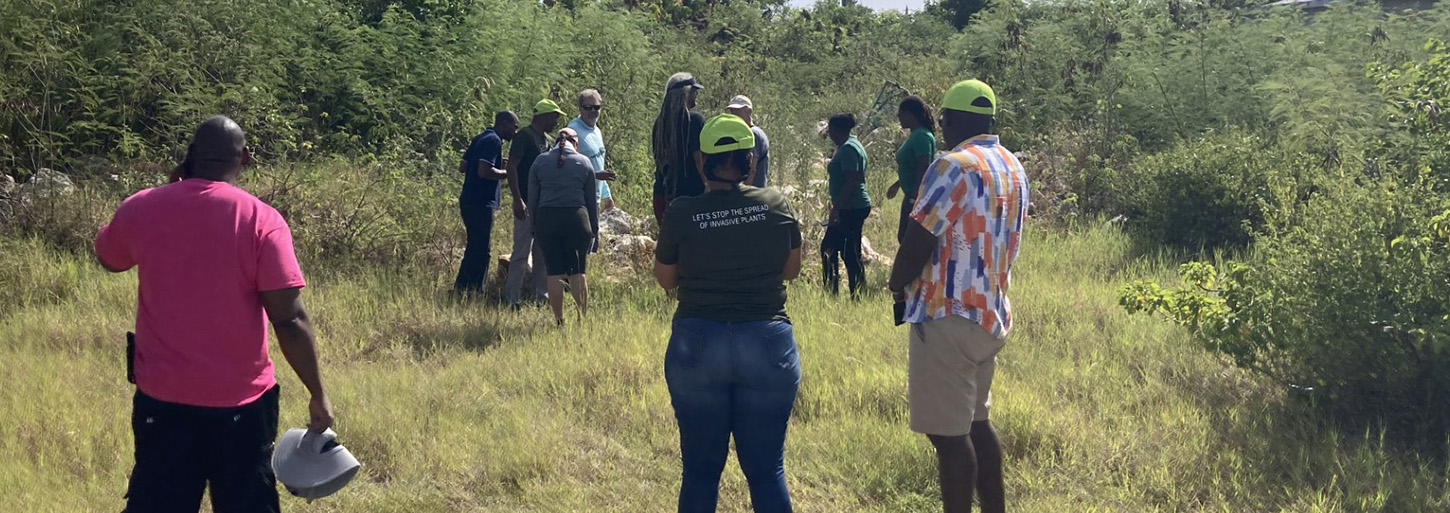The Caribbean UK Overseas Territories are home to diverse and unique species but, like islands worldwide, they face a major and growing threat from invasive non-native species. Through two Darwin Plus funded projects 1, 2 we convened a workshop involving participants from Anguilla, Bermuda, Cayman Islands, Montserrat, and Turks and Caicos Islands to share information on monitoring and managing invasive non-native species.
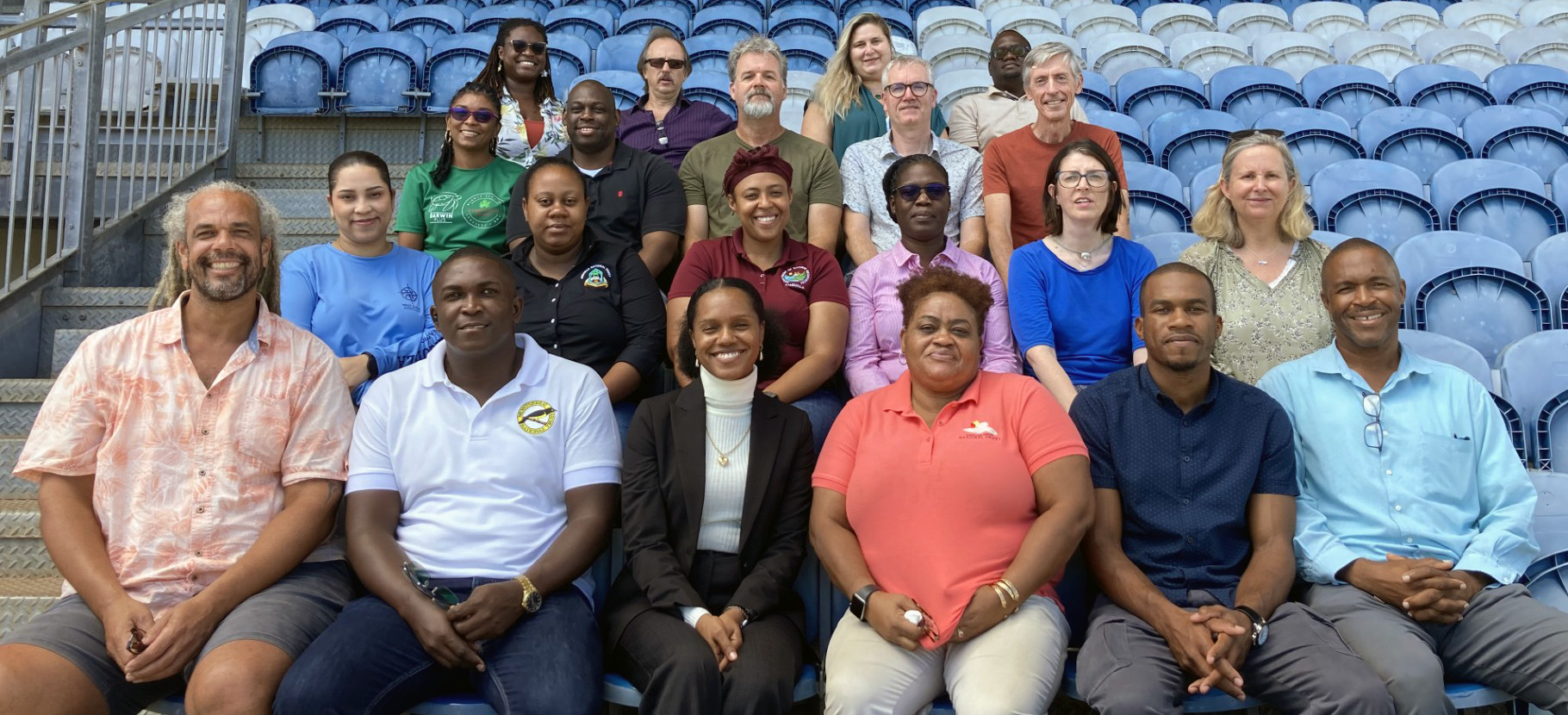
Participants from each territory represented at the workshop outlined major challenges posed by invasive non-native species and shared inspiring stories from across the Caribbean of efforts to mitigate the impacts. Community engagement was a common theme underpinning the success of many initiatives. Raising awareness of the threat of biological invasions to biodiversity and ecosystems is critical, and participants shared some of the beautiful and engaging resources that they have developed.
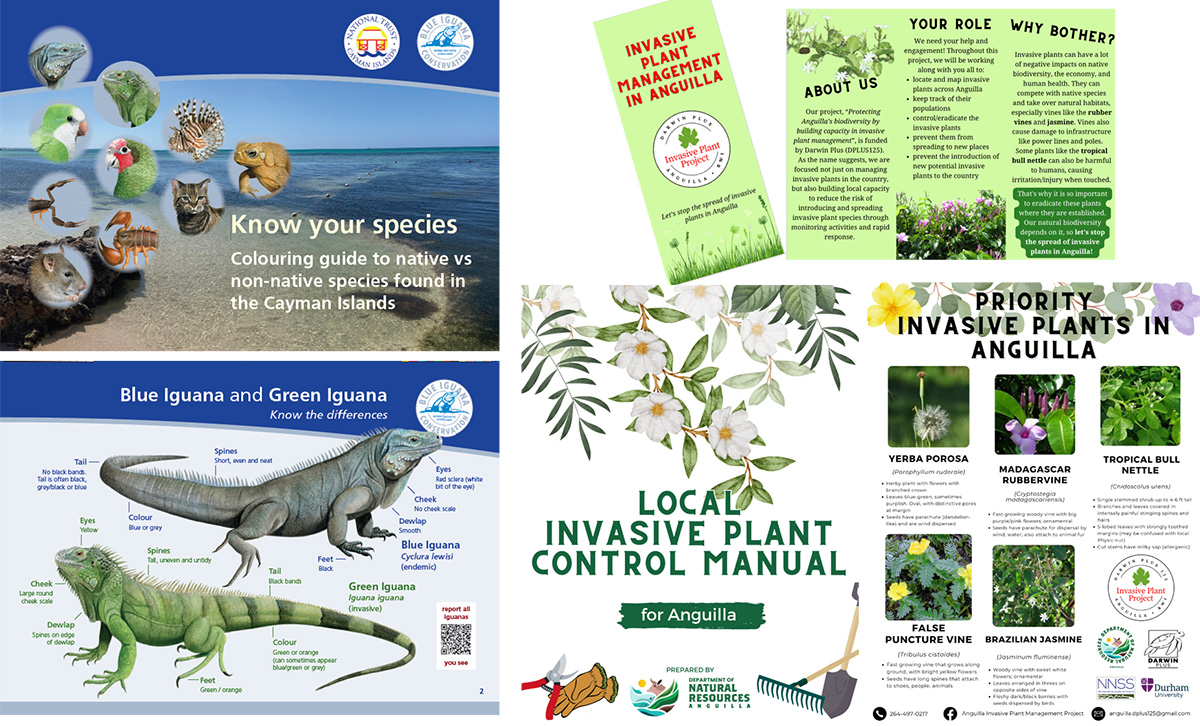
After removing invasive non-native species, it is important to consider how to reduce the risks of further biological invasions. Restoring habitats can play an important role in achieving this. Disturbed areas are more vulnerable to biological invasions and the bare ground left after clearing invasive plants can be rapidly colonised by other invasive alien species. The availability of suitable plants to fill these gaps can also limit the success of efforts to manage invasive alien species.
On Bermuda, pumpkin plants are used as a temporary measure to cover bare ground until other plants are available or have grown sufficiently. The pumpkins not only provide a solution to reduce the chance of invasive non-native species establishing, but they also provide food for the local community. Innovative but simple solutions such as this make a big difference to tackling the threat of biological invasions.
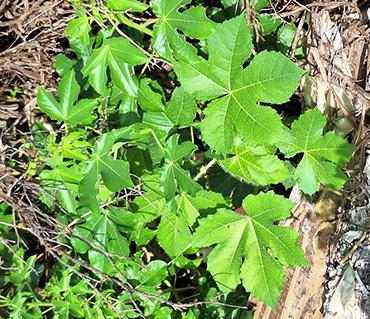
In Anguilla, the Darwin Plus 125 project team is working towards eradication of the Tropical Bull Nettle (Cnidoscolus urens). Covered in fine stinging hairs from stem to seed, this species poses a threat to human health. Thankfully it is limited to only a few sites, making it a suitable target for eradication. The team has made significant progress over the last year, with most adult plants removed from the populations and continuous culling of newly emerged seedlings.
As the longevity of the seed bank and the original date of introduction to Anguilla are both unknown, monitoring will be necessary for at least the next four years to ensure that all traces of the Tropical Bull Nettle are successfully removed from the country.
While sharing their experiences of removing this species, the DPlus125 team also gained insights from the experiences of other workshop participants. Several territories are grappling with invasive plants, including Australian pine (Casuarina equisetifolia), Brazilian pepper (Schinus terebinthifolia), and Java plum (Syzygium cumini), and the individual presentations on methods and tips for managing each species were incredibly helpful for all. In fact, on a stroll in the days after the workshop, Myles Darrell from Bermuda identified the first record of Brazilian pepper for Anguilla—highlighting an unexpected benefit of having new, experienced eyes on sites!
Monitoring and surveillance are critical for the early detection of invasive non-native species and for tracking the spread of established invasive non-native species. Through Darwin Plus 175 we are compiling information on non-native species for all the UK Overseas Territories. We are also working with experts within the UK Overseas Territories to consider ways in which we can enhance the flow of information going forward. At the workshop we discussed possible approaches to improving data flows for invasive non-native species.
A number of key actions emerged and we are looking forward to working together to implement these in the future:
- Working together to review the information that has been collated so far
- Considering approaches to developing and implementing a simple notification system that would alert others across the Caribbean UK Overseas Territories of new invasive non-native species introductions
- Addition of further information and links within the data system to support UKOTs eg, management approaches and sharing best practice.
- Produce an identification guide to raise awareness across the Caribbean UK Overseas Territories including a few high profile invasive non-native species: black rat, Iguana, Chicken, Casuarina
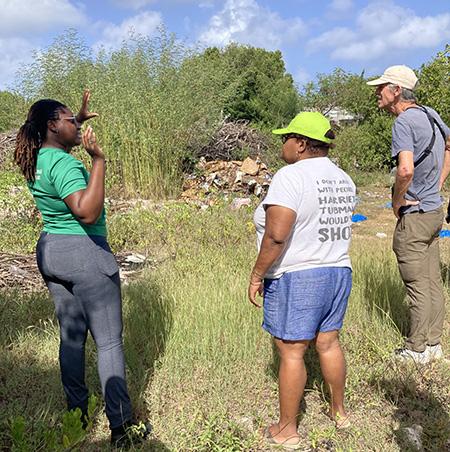
Everyone has a role to play in biosecurity and throughout the workshop we heard about ways to raise awareness and engage communities. Participants were excited at the potential opportunities to work with one another in sharing information across the region. A bioblitz across the Caribbean UK Overseas Territories using iNaturalist to gather observations could be a first step to achieving this aim.
Collaborating on these two Darwin Projects to bring together experts from across the Caribbean provided incredible insights and examples of the ways in which people are addressing biological invasions. Our discussions covered many topics and it was a privilege to work alongside all the participants. We are extremely appreciative of the Anguilla Government for hosting our visit. The lively and enlightening discussions throughout the five days highlighted the incredible value of coming together.
It has been wonderful to hear reflections from the participants since returning home:
The whole Anguilla experience was an inspirational undertaking, but I was most inspired by the incredible work and consistency of the many people who shared their stories of tackling invasive species in the face of great adversity. Some of which I can directly use in my own projects, especially the new and exciting monitoring methods shared.
I think the most useful aspect that I have already started acting on is alerting others to the horizon species that we need to be on the lookout for. Prevention is better than a cure.
It really is great to come together with people who are like-minded and as the American philosopher John Dewey once said, "We don't learn from experience we learn from reflecting on experience". This workshop reminded me how important reflection is and how important it is to share the learning that comes about."
Myles Darrell - Head of Natural Heritage, Bermuda National Trust
I felt privileged to participate in the regional workshop and appreciated meeting other people who are involved in managing invasive species. One connection I made while there has already provided help with identifying a novel non-native species recently reported on Bermuda."
Mark Outerbridge - Wildlife Ecologist, Department of Conservation Services, Government of Bermuda
The most inspiring part of the workshop was the vibrant exchange of ideas and knowledge. Each session was interactive and captivating, fuelled by participants' passion and enthusiasm for exploring new technologies and innovative methods for managing non-native species.
Following the notification about the presence of the Brazilian Pepper in Anguilla, we visited the site to assess the distribution of the plant and are now exploring the best course of action. We plan to collaborate with our colleagues in Bermuda to learn from their experiences and effective approaches to managing this species."
Nyasha Child – Project manager, Department of Natural Resources, Government of Anguilla
I consider myself very fortunate for being a partner at DPLUS175. Through this project we managed to build a global synergy among UKOTs and learn so much from each other. The Caribbean territories are doing exceptional efforts towards IAS management. I really hope that we can build more on this synergy and continue working together on One Health and One Biosecurity issues, sharing our experiences and working with novel tools and strategies."
Kelly Martinou – JSHU, British Forces Cyprus
It was fascinating and informative to meet and hear from so many people working on so many different invasive species. It really helped to get first-hand information on some of the threats on the horizon for Cayman, and to hear the various perspectives on the species that we are already tackling."
Frederic Burton - Department of Environment, Cayman Islands Government
